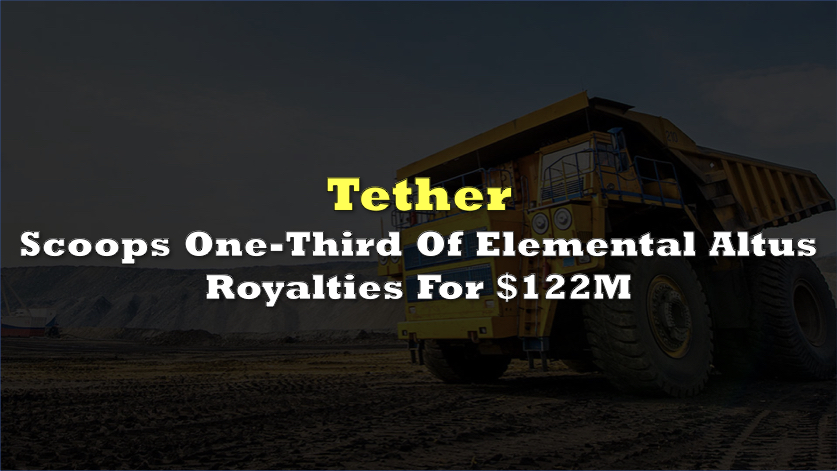On Thursday, stablecoin firm Tether announced that it has switched accounting firms. The company tapped the Italian member of accounting firm BDO to sign off its attestations of its financial situation moving forward.
“Our commitment to transparency and the community is a long-standing pillar in the underlying ethos of the company and aligns with our responsibility as a market leader,” said CTO Paolo Ardoino. “We have once again demonstrated that commitment by aligning with BDO, one of the world’s top accounting firms.”
Then, just a day after, the firm released an independent auditor report–which is really an assurance opinion on the company’s consolidated reserves report (CRR) as declared on June 30, 2022.
“In our opinion, the CRR as prepared by the management of [Tether and its subsidiaries] as of June 30, 2002, is, in all material aspects, fairly presented in accordance with the criteria, including Management’s Key Accounting Policies, set out therein,” BDO Italia’s report concluded.
The stablecoin firm has been continuously challenged to inject transparency in its assets, especially the securities used to back its dollar-pegged coins. Tether has been assuring its investors that an audit will come but has yet to deliver.
With the primary release of BDO Italia’s “auditor report,” is this the audit the firm has promised?
The need for audit
Investors’ transparency concerns are not existing in a vacuum. Back in February 2021, Tether and Bitfinex exchange’s parent firm, iFinex, settled a probe by the New York Attorney General’s office for US$18.5 million. The investigation was brought about by customers complaining about the firm making several public misrepresentations regarding the dollar reserves backing the stablecoin.
One of the results that came from the probe is Tether’s commitment to produce quarterly reports on the reserves for tether, breaking it down by type and percentages.
Then, the firm started using accounting firm MHA Cayman to provide attestations on these reports. Attestations are generally less rigorous than actual audits, and may only provide opinions on whether the reports follow the set forth accounting principles.
“Auditors will weigh in on risk management and financial controls. That type of thing doesn’t show up in the attestations,” said Steven Kelly, a senior research associate focusing on financial stability at the Yale School of Management, to The Wall Street Journal.
MHA Cayman’s parent company, MHA MacIntyre Hudson, is under an investigation by UK-based watchdog, the Financial Reporting Council, regarding the firm’s audits of the firm MRG Finance.
Tapping one of the biggest accounting firms in the world like BDO Italia is supposed to project transparency for Tether, as the company asserted that it is “dedicated to setting a market standard to which [its] competitors and future stablecoins can look to for guidance.”
Tether also said it plans to continue releasing monthly attestation reports. However, it did not clarify if BDO Italia will conduct the long-promised full audit.
Ahem… And now what?#tether attestations will be completed by BDO Italia, part of BDO global, top 5 accounting firm. First one tomorrow.
— Paolo Ardoino 🕳🥊 (@paoloardoino) August 18, 2022
Next step: monthly attestations. https://t.co/eLci2x0siN pic.twitter.com/uGsq2Hpu4r
The “auditor’s report”
At the surface, the Q2 2022 report looks like the previous attestation’s on Tether’s asset valuations. BDO Italia also stamped its unmodified opinion on the stablecoin firm’s report, same with MHA Cayman in its Q1 2022 report.
Topline results include valuing the Tether Group’s consolidated assets at US$66.41 billion, down from the previous quarter’s US$82.42 billion. Total liabilities ended at US$66.22 billion, also down from last quarter’s US$82.26 billion.
The firm also highlighted the quarter-on-quarter decline on commercial paper reserves: from US$20.10 billion to US$8.40 billion this quarter. Tether said this is on track to its goal of pushing down the commercial paper reserves to US$200 million by the end of August 2022 and zero out the balance before the year ends.
“The attestation indicates a continued reduction in commercial paper investments by the Company and demonstrates that the group’s consolidated assets consistently exceed its consolidated liabilities, despite market capitulation in Q2 2022, which led to cascading failures across the industry,” the firm’s report noted. “Emerging from this black swan event, Tether demonstrated its resiliency and continued commitment to transparency, dependability and commitment to removing commercial papers from reserves.”
As of July, the company said that its commercial paper reserves now account for US$3.7 billion.


Notable increases quarter-on-quarter include the firm’s secured loans, valued at US$4.94 billion at the end of Q2 coming from its Q1 value at US$3.15 billion.
The firm also saw its “other investments” soar to US$5.55 billion from last quarter’s US$4.96 billion. The line item, which the firm declared involving digital token investments, saw an increase in valuation despite the crash of crypto prices–a “black swan event” as the firm referred to it–and the company’s stake in Celsius, which suffered a collapse in June that has now led to its bankruptcy.
Tether changing the accounting firm doing their attestations after the Celsius bankruptcy is likely because whatever they are producing to the new accounting firm will contradict the information that they showed the old accounting firm.
— Bitfinex’ed 🔥 Κασσάνδρα 🏺 (@Bitfinexed) August 18, 2022
Bernie Madoff had to do this too.
However, comparing the two reports–BDO Italia’s Q2 2022 and MHA Cayman’s Q1 2022–would yield very little difference. Similarities would run from format outline to language and wordings. Both reports also followed the same templates for disclosures, including not providing assurance on the company’s going concern assessment of its accounting methods, disclosing that no provision for expected credit losses was identified by management regarding unusually large asset sales or defaults, and disclosing that no provision was recognized by the management regarding Tether’s ongoing legal battles.

One of the few stark differences is the reports’ titles: BDO Italia’s says it’s an “independent auditor’s report” while MHA Cayman’s says it’s an “independent accountant’s report”. However, both reports never mentioned that the report was an audit of the company.
BDO Italia’s report specified that its responsibility is to “express [its] conclusion based on the procedures performed about the compliance of the CRR with the criteria, including Management’s Key Accounting Policies, set out therein.”
The accounting firm also identified in its report the specific actions it took to come up with its conclusion, including inquiring the Tether management on last quarter’s operations to identify material changes, comparing financial data between the current and past periods, obtaining confirmation letters from the company’s banks and depositaries, and verifying through sampling if the assets are valued correctly.
BDO Italia also said it verified the existence of the collaterals on which the outstanding loans are supposedly secured against, also through sampling–hence, its conclusion that “secured loans are fully collateralized by liquid assets… and adjusted for any expected credit loss allowance.”
So, when’s the audit?
Clearly, the accounting firm switch and the subsequent “auditor’s report” don’t yet spell a transparent audit for Tether. If the previous attestations by the former accounting firm weren’t enough to quell doubts on the company’s promised security, changing the signatory accounting firm probably wouldn’t accomplish it as well–given that the reports are similar in nature.
For now, Tether investors will have to make do with monthly attestations that the company promised. If the full audit is coming and BDO Italia would be handling it, it might be wise to study that report carefully, given the accounting firm’s storied past.
But, that is a big “if”.
Tethers new accounting firm, everybody.https://t.co/yhJljkquqJ
— Bitfinex’ed 🔥 Κασσάνδρα 🏺 (@Bitfinexed) August 19, 2022
h/t @knmjohansson pic.twitter.com/rX51ywo7gO
Tethers new accounting firm, everyone.
— Bitfinex’ed 🔥 Κασσάνδρα 🏺 (@Bitfinexed) August 19, 2022
Thank you /u/Dirt-Purple pic.twitter.com/DCOs6DnHdm
Information for this briefing was found via The Wall Street Journal and the sources mentioned. The author has no securities or affiliations related to this organization. Not a recommendation to buy or sell. Always do additional research and consult a professional before purchasing a security. The author holds no licenses.









